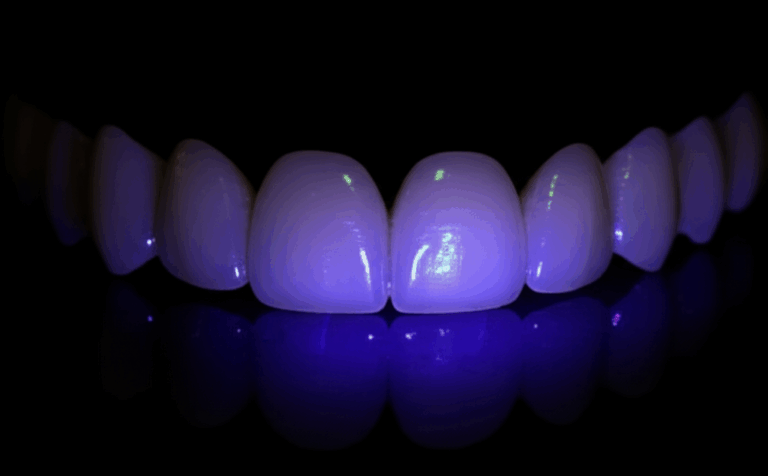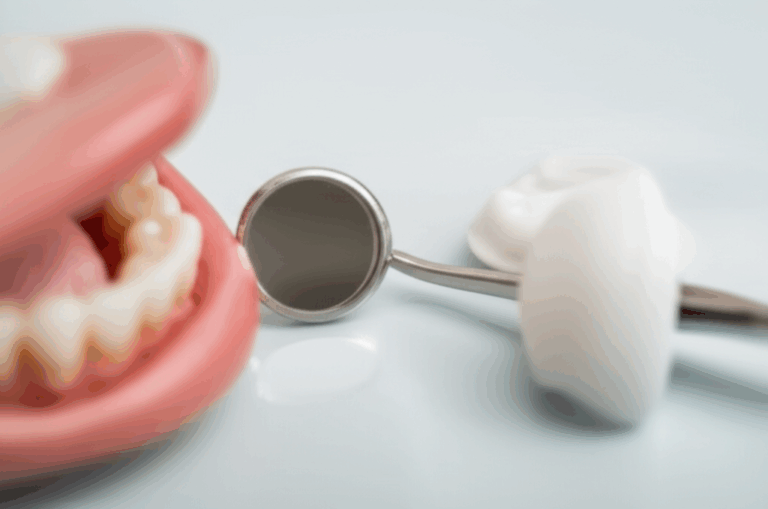
How to Become a Dentist with a Bachelor’s Degree: Your Compassionate, Step-by-Step Guide
Ever wondered what it really takes to turn your bachelor’s degree into a trusted dental career? Maybe you’re worried if your college classes are enough, or you’re unsure about DAT scores, shadowing hours, and interviews. You want a clear, friendly plan—one that answers your questions, explains each step honestly, and leaves you feeling ready to move forward.
You’re in exactly the right place.
The journey from college student to dentist can look scary at first, but you’re not alone. Thousands of students go through this every year, with the same worries, hopes, and problems. So let’s break it down, step by step, and help you plan for a bright future in dentistry.
In This Article
- What Does It Take to Become a Dentist After a Bachelor’s Degree?
- Building Your Foundation: The Right Bachelor’s Degree and Courses
- Experience Matters: Shadowing, Volunteering, and More
- The DAT: Your Admission Ticket to Dental School
- Navigating the Dental School Application Process (ADEA AADSAS)
- Life in Dental School: What to Expect
- The Last Mile: Licensure, Residency, and Practice
- Alternative Pathways and Common Questions
- Your Action Steps and Encouragement
What Does It Take to Become a Dentist After a Bachelor’s Degree?
Let’s begin with the big question: Can I really become a dentist if I have a bachelor’s degree? The answer is yes—you must have a bachelor’s degree to apply to dental school in the United States. This is the first, important step toward earning either a DDS (Doctor of Dental Surgery) or DMD (Doctor of Dental Medicine), which both let you become a dentist.
But what does the whole journey look like? In short, it goes like this:
It’s a long process, but if you take it one step at a time, you can do it.
Building Your Foundation: The Right Bachelor’s Degree and Courses
What should you major in for dental school?
You do not have to be a biology major to get into dental school. Many students pick biology or chemistry because these “pre-dental” classes are required, but dental schools accept any major, as long as you finish the important science classes.
Common Pre-Dental Majors:
- Biology
- Chemistry
- Biochemistry
- Biomedical Sciences
Other Majors: English, psychology, business, or art—dental schools like students with different backgrounds!
The Must-Have Classes
No matter your major, finish these “pre-dental” classes:
- Biology (with lab): General biology, anatomy, physiology, microbiology
- Chemistry (with lab): General and organic chemistry, biochemistry
- Physics (with lab): Usually two semesters
- Math: At least one class in statistics or calculus
- English/Writing: Good writing and speaking are important
- Extra Helpful Classes: Psychology, sociology, and other social studies help show you’re well-rounded
Tip: Keep a list of every needed science class you finished, with your grades and credit hours. This saves you time when you apply.
What GPA do you need?
Dental schools are tough about grades. Data from the American Dental Education Association (ADEA) shows the average overall GPA for accepted students is about 3.5-3.6, and for science classes, 3.4-3.5. There are no hard rules, but aim high. If your grades aren’t perfect, don’t lose hope—schools also look at upward trends, great DAT scores, and your whole self.
Experience Matters: Shadowing, Volunteering, and More
You need good grades, but you also need to show that you really know what dentistry is and that you care about people.
Dental Shadowing: See What Dentists Really Do
What is shadowing? You watch a real dentist at work, see how they treat patients and run the office. This is not just watching—you should ask questions, think about what you saw, and write down your hours.
- How many hours? Most good applicants get at least 100-200 hours, often in a few offices so you see different styles.
- How to find shadowing: Ask your dentist, talk to your school’s pre-dental club, check at local clinics, or visit your campus health jobs office.
- Track everything: Write down dates, dentists’ names, what kind of office, and what you learned. Some schools will ask for this.
Volunteering and Patient Care
Helping real people shows you care and can work in a medical setting.
Good ways to volunteer:
- Act as a dental assistant
- Volunteer at a hospital or free clinic
- Organize dental health events
- Help at health fairs
Most dental students who get in have a lot of hands-on experience (often 50-100+ hours)—not just with dentists, but anywhere people need help.
Research, Leadership, and Hand Skills
- Research: Working on science research isn’t required, but it helps show you care about learning. If you can present or publish your project, even better.
- Leadership: Running a club, sports team, or event shows you take charge. Schools like this.
- Manual Dexterity: Dentists need steady hands. Try drawing, painting, making small crafts, playing an instrument, or building models.
Schools want to know who you are, not just what you know.
The DAT: Your Admission Ticket to Dental School
Remember the SAT or ACT? For dental school, the big test is the Dental Admission Test (DAT). It checks your science, thinking, and even how well you work with shapes and spaces.
What’s on the DAT?
- Natural Sciences: Biology, General Chemistry, Organic Chemistry
- Perceptual Ability: Tests how you see and work with shapes
- Reading Comprehension: Understanding science articles
- Math: Algebra, problem solving, statistics basics
Format: Multiple choice, on a computer. It takes about 4.5 hours.
How do you get ready for the DAT?
- Plan to study for 3-6 months—more if you’re busy or taking classes
- Use official stuff: The American Dental Association (ADA) has real sample questions and guides
- Try DAT prep books and online practice courses—they help you make a plan, see your progress, and get used to the test
- Practice a lot: Do full, timed practice DATs
What scores are good?
- Most new dental students score 20-21 out of 30 as their big average
- Perceptual ability scores are also about 20-21
A strong score helps if your GPA is a little low or your background is different.
Navigating the Dental School Application Process (ADEA AADSAS)
Ready to apply? Almost all dental schools use the AADSAS—a big application website. It collects everything: your grades, DAT scores, letters, essays, and more. The process can feel like a lot, but we’ll walk through it.
Application Timeline
- Start early: The application cycle opens in late May or early June each year for the next year’s class.
- Apply early: Aim for June or July for the best chance at interviews.
What You Need
- Transcripts from all your colleges
- DAT scores sent straight from the ADA
- Letters of recommendation: Usually 2-3 from science professors and 1-2 from dentists or bosses. Pick people who know you well.
- Personal statement: A real essay (about 4,500 letters) on why you want to become a dentist. Tell your story and what you care about.
- Experiences: List all your shadowing, volunteering, research, leadership, and other activities.
- Secondary applications: Many schools will send you more essay questions. Do these quickly.
The Dental School Interview
If your application looks good, schools will ask you to interview—
- Format: Can be one-on-one, with a group, or multiple short interviews (MMI).
- Questions: Why dentistry? What problems have you faced? How do you make tough choices?
- How to prepare: Practice talking about your real experiences. Have questions for the school too—they want to see that you care.
Life in Dental School: What to Expect
You’re in! But what’s next for the next four years?
DDS vs DMD: Is There a Difference?
Here’s the simple answer: DDS and DMD degrees are the same. The classes and jobs are the same—schools just use different names.
The Four Years
- Lots of science: anatomy, chemistry, microbiology, and dental basics
- Lab work on teeth and mouth simulators
- Early work on talking to patients
- Work with real patients (with a teacher nearby)
- Learn every type of dentistry: general, surgery, kids’ teeth, braces, gum care, making dentures, and more
- Plan cases and work with a team
Schools approved by the Commission on Dental Accreditation (CODA) make sure you get a good, tough education. If you want to learn about new dental technology, many schools work with special labs like digital dental labs, ceramics labs, and labs for night guards or dentures.
Paying for Dental School
Dental school is expensive.
- Yearly tuition and fees:
- Public schools: $40,000 – $70,000+
- Private schools: $60,000 – $90,000+
- Total loan debt:
- Most students owe $250,000–$400,000 when they finish
- Living costs: Don’t forget rent, food, books, tools, exams
How to pay?
- Federal student loans: The main way most pay
- Scholarships and grants: Given by schools and dental groups
- Loan repayment: Some programs let you work in public health or the military to help pay back your loans
- Part-time work: Not common since dental classes are very busy, but some do small jobs
Start thinking about money early, talk to financial aid offices, and apply for every help you can.
The Last Mile: Licensure, Residency, and Practice
You’re almost there!
Getting Your License
Before you can work, you must:
Starting Your Job or a Specialty
- General Dentist: Open your own office, join a group, or work in public clinics. Good if you want to see all kinds of patients.
- Specialties: Braces, kids’ teeth, surgery, gum care, root canals, dentures, and more.
- Residencies: Last 2-6 years depending on the specialty. Getting in is tough—schools look for good grades, test scores, and real commitment.
Dental Job Market and Pay
- Job outlook: Jobs will grow 4% in the next 10 years (U.S. Bureau of Labor Statistics)
- Median yearly pay: About $163,220, with specialists and grown-up dentists making more
You build your own career—teaching, research, or public health are all possible.
Alternative Pathways and Common Questions
What if I didn’t major in science or my grades are too low?
Many students move into dentistry after doing other things.
- Post-bacc programs: For people who need to take science classes or raise their GPA
- Take a gap year: Spend a year getting experience, studying for the DAT, or redoing your application
- Take classes again: If your grades are too low, retaking science classes can help
Do I need a master’s or extra degree?
No, but some students do a master’s in science or public health to show more skills.
Is financial aid available?
Yes—federal loans, scholarships from groups like the American Dental Association, and state or local help. Look everywhere and apply to lots!
How important are hand skills?
Dentistry is very hands-on. Do hobbies that use steady hands—drawing, crafts, music, model building. Some schools even check your hand skills during interviews!
Your Action Steps and Encouragement
The path is long, but you can do it step by step. Here’s a quick list:
1. Plan Your Classes
- Make sure your bachelor’s degree has all the key science classes
- Plan early, so you don’t rush at the end
2. Get Experience
- Find dentists to shadow—keep track of your hours
- Volunteer in clinics, dental offices, or hospitals
- Join campus clubs or research to show leadership and teamwork
3. Get Ready for the DAT
- Make a study schedule
- Use real practice questions and books
- Retake the test if you have to
4. Make a Great Application
- Ask for letters early
- Write a real personal statement about why you want to help people as a dentist
- Apply as soon as you can
5. Take Care of Yourself
- Dentistry is about people, not just grades. Build your empathy, strength, and ability to talk with others. You need these skills every day.
If you feel inspired but also worried, that’s normal. Every dentist began just like you—curious, unsure, and planning. Now it’s your turn.
Additional Resources
To check out the latest dental materials and tools, look up places like a china dental lab, a digital dental lab, or read more about work at implant dental laboratories. You’ll see many of these in dental school and in your job.
Empowering Takeaways
Your path to becoming a dentist starts with:
- Smart class planning—any major is fine, but you need the right science classes
- Real-world practice—shadow, volunteer, join fun clubs, and practice hand skills
- Good DAT study—don’t rush, and try your best
- Honest story-telling—let schools see why you care in your essay and interviews
- Not giving up—there are other ways in, like post-bacc programs, and there’s lots of help paying for school
Most important: You don’t have to be perfect to be a good dentist. What matters is you care, you keep learning, and you keep going, step by step.
Ready to start? Talk to your pre-dental advisor, reach out to a local dentist for shadowing, and begin your journey to helping others smile every day.
You’re not just getting a job—you’re building a life with skill and service. Dentists like you are always needed.
Sources:
- American Dental Association (ADA)
- American Dental Education Association (ADEA) Official Guide to Dental Schools
- U.S. Bureau of Labor Statistics (BLS)
(For more on dental specialties, surviving dental school, and new dental materials, check our future guides!)








